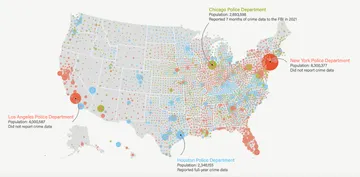In the fall of 2015, I was arrested in Flint, Michigan, by the FBI, for a bank robbery I committed earlier that year in California.
After a brief interview, I was taken to the “old jail” in downtown Flint to await my arraignment the following morning. Once there, they booked me into a cell where there was a paper sign over the toilet saying DON’T DRINK THE WATER.
The next day, I was passed off to the U.S. Marshals and taken to the federal courthouse, where the judge decided to change my 9 a.m. court time to 5 p.m. This, of course, was not a problem for them—the Marshals had Candy Crush to play, and there was a holding tank for me. There, the cop left me shackled, even after he’d locked the metal door with the slot that, if I’m not mistaken, was meant for me to stick my cuffs through so that he could take them off.
But there are two types of people in jail: People who complain and people who don’t, both of whom fall into the larger category of people who don’t get what they want.
I hadn’t had any water in hours, but, this being Flint, the holding tank’s sink had the same paper warning sign taped over it: DON’T DRINK THE WATER. They’d given me two milks at four in the morning and that was it.
Lunch was a lump of baloney salad—taxpayer money that went, quite literally, down the toilet. There was nothing to drink.
Time passed. A court-appointed lawyer came and had me sign something waiving my right to fight being extradited back to California. I saw the judge at five and the D.A. told him that I was a flight risk. (No shit.) No bail.
With that, the day spent in chains was over. I was taken this time to the “new jail”—“new” being a bit of a misnomer. A more accurate name would be “the dirty, piss-stained jail grossly ill-equipped to handle all the black people they try to cram into it.” The cops strip-searched me in central booking, taking my clothes in return for an orange jumpsuit that was one size too small—that’s it. No boxers, no shirt, no socks, no fucking shoes.
After that, I was made to follow the guard to an absurdly tall desk to sign some more papers, my bare feet on the cold, piss-sticky floor. As I was signing the paperwork, I noticed a couple of inmates being led about with orange shower shoes, slapping humbly on their feet. WTF? I thought.
I asked the deputy, kindly, whose ass I’d have to slap to get a pair of rubber kicks. He leaned over the counter to regard my naked feet with an expression suggesting that he was trying to figure out how my shoelessness could be attributed to some mischief on my part.
Finished with the papers, I was directed to a holding tank where I was greeted by, roughly, 30 faces, within a concrete room smaller than a boxcar, sitting shoulder to shoulder. They had to make room just so that I could have a spot in the middle of the floor. All the good seats (spots on a metal bench, or even floor spots where you could lean your back against the wall) were taken. The air smelled of sour beef and cheese, and obviously urine.
And there was a metal sink/toilet in the corner—with that same paper sign: DON’T DRINK THE WATER. I looked around the tank with a mounting feeling of dread. “What’s the wait time on a cell?”
“A week.”
“When will they give us something to drink?”
“At dinner.”
So I just waited, first hugging my knees, then cross-legged—and now getting dope-sick, as withdrawal set in.
At one point I got up, stepped over people, and went to a little spot where I could at least stand with my back against the wall. But it was instantly apparent why this prime real-estate had been left open: It smelled like an ocean of piss, with fruit-flies overhead instead of seagulls.
I was becoming afraid. How was I supposed to get dope-sick and spend a whole week cross-legged on concrete, without water, deodorant or underwear? When would I see a nurse?
Dinner came. At first I thought it was a giant M&M cookie, but on inspection it turned out to be all of our dietary requirements baked into a pernicious little loaf. There was no water, though—they gave us a 5-oz plastic teacup of cold, unsweetened tea.
“When will they give us something else?”
Stupid question.
Now severely in withdrawal, I felt like every point of contact with the concrete was making my skin literally crawl. I knew I wouldn’t be able to sleep. My brain was officially torturing me.
Days passed like this—breakfast and lunch were the same loaf, plus the same teacup with either tea, Kool-Aid or powdered milk, never water. At three cups of non-water a day we were always thirsty, and people began disregarding the sign. Cancer or whatever the kids in Flint get, be damned.
Each day they’d bring more guys in. A few inmates threatened suicide, thinking it’d land them a cell by themselves, possibly with a mattress, or at least a blanket. Instead the deputies took them over to the isolation rooms on the other side of the office, which were also bare concrete. The only difference for them now was their shoes were taken and they were given a paper suit to wear instead of their jumpsuit.
The biggest thing that stuck with me from this whole experience, aside from the constant thirst and my dope-sick desperation, was the fate of a kid who was in need of medical assistance.
They brought in this young kid, who had pneumonia, just one of the possible side effects of drinking the city’s water. He appeared homeless, as his hair was wild and unkempt and he seemed to be about 20 pounds underweight—a little twig of a teenager who started coughing and shaking the minute he sat down in the tank.
Every time a deputy opened the door, the kid would ask (between coughing fits) if he could see a nurse, or at least get a blanket.
“No.”
“If I wild-out, will you take me to the hole?”
“No.”
“What if I punch you in the face.”
Next thing I know, several deputies were surrounding the kid, and he was taken out of the tank unceremoniously.
I’d never in my life heard someone scream in terror like that—of course there’s the movies, but I’d never heard this.
I thought at first that I was hearing some crazy person laughing as loud as they possibly could. The sound had that same complete lack of reservation. Nothing self-conscious about it.
My lawyer came the next day. Apparently, I’d signed the wrong paper—a paper saying that I was actually fighting the extradition process, which I wasn’t. That's why I’d been stuck there in Flint, Michigan, without water, for as long as I had been.
This time, my attorney assured me, he’d brought the right forms.
Samuel Campbell, 28, is incarcerated at USP Allenwood in Allenwood, Pennsylvania, where he is serving a 70-month sentence for armed bank robbery.
Editor’s note: In March 2016, a lawsuit filed by the Michigan State University Civil Rights Clinic on behalf of Genesee County Jail inmates claimed that between October-December 2015, inmates were given only nine days' worth of bottled water, and when that ran out, were told to drink and bathe in contaminated water. A settlement was reached in the summer of 2016 in which the jail entered a consent decree to provide inmates up to 128 ounces of bottled water a day. A separate, still open lawsuit from June 2018 alleges similar conditions from that time period.
In a fact-checking call, Chris Swanson, undersheriff for the Genesee County Jail, said that at no time during the Flint water crisis were inmates denied clean water or forced to drink contaminated water.

